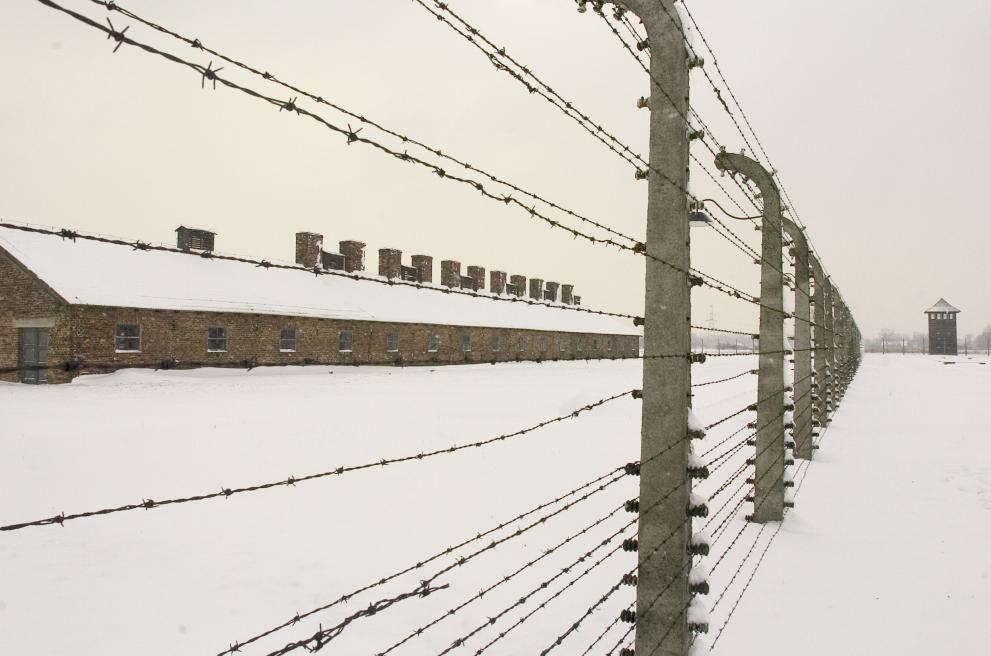
Ahead of the International Holocaust Remembrance Day, President von der Leyen said:
“We must never forget the six millions of Jewish women, men and children, and all other victims, among them hundreds of thousands of Roma, murdered during the Holocaust.
This year will be marked by remembering Jewish resistance and insurgence in Nazi-occupied Europe. We will commemorate the 80th anniversary of major uprisings, like the Warsaw Ghetto uprising on 19 April 1943, which became a symbol of Jewish resistance and the brutality of the Nazi regime. But also other resistance acts like in Belgium, where, that same day, three members of the resistance - Robert Maistriau, Youra Livchitz and Jean Franklemon - sabotaged a train going to Auschwitz with Jews sentenced to death. Others could later escape from that train, 120 survived. There were other revolts that might be less talked about – in concentration and death camps in Treblinka and Sobibor or the Białystok Ghetto. Because Jewish victims were not passive; they organised resistance against the Nazis.
Still today, and forever, we can learn from the strength, courage and the determination of these poorly armed Jewish fighters and partisans, who carried out revolts successfully against all odds, and an almost certain death. They fought in the name of justice. They were determined to fight back.
As stated by Auschwitz survivor Elie Wiesel: “The question is not why all the Jews did not fight, but how so many of them did. Tormented, beaten, starved, where did they find the strength – spiritual and physical – to resist?”
We cannot remain silent when injustice takes place, when massacres are committed. We have to call out antisemitism, antigypsyism and all forms of hatred and discrimination – be it on the grounds of racial or ethnic origin, religion or belief, gender, sexual orientation, age or disability.
Antisemitism led to the Holocaust but did not end with it. Antisemitism is again on the rise in Europe. So is Holocaust denial, distortion, trivialization, which is fueling antisemitism and has corrosive effects for collective European memory and cohesion.
Remembrance is not an aim in itself. We must go a step further. We must foster Jewish life. Europe can only prosper when its Jewish communities prosper too. We will work towards a European Union free from antisemitism and any form of discrimination. For an open, inclusive and equal European society.”
Background
The European Commission put forward the first-ever strategy on combatting antisemitism and fostering Jewish life on 5 October 2021, to support EU countries and civil society in their fight against antisemitism. Holocaust remembrance is an essential pillar of efforts to ensure that we never forget our history.
This year, as part of its efforts to mark International Holocaust Remembrance Day, the European Commission organised on 23 January the Holocaust remembrance conference “Remembering the Past. Shaping the Future”, in partnership with the Swedish Presidency of the Council, the Swedish Presidency of the International Holocaust Remembrance Alliance (IHRA) and Brussels-based Jewish umbrella organisations.
To raise awareness and counter Holocaust distortion, the Commission has launched and continues to work on a global campaign to #ProtectTheFacts, together with the International Holocaust Remembrance Alliance (IHRA), UNESCO and the United Nations.
In 2005, the United Nations General Assembly Resolution on the Holocaust Remembrance (60/7) designated 27 January as the international commemoration day in memory of the victims of the Holocaust. On 27 January 1945, the Allied Forces liberated the concentration and death camp of Auschwitz-Birkenau.
The resolution urges every member of the United Nations to honour the memory of Holocaust victims and encourage the development of educational programs about Holocaust history, to prevent future acts of genocides. It calls for the active preservation of Holocaust sites such as Nazi death camps, concentration camps, forced labour camps and prisons.
In January 2022, the UN adopted a further resolution, condemning denial and distortion of the Holocaust. This resolution calls urges members of the UN and social media firms to take active measures to combat antisemitism and Holocaust denial or distortion.
The European Commission and EU Member States have committed to work against antigypsyism as part of the EU Roma Strategic Framework and the Council Recommendation on Roma. A first assessment report of the Member States' National Roma Strategic Frameworks was adopted on 9 January 2023.
As part of the Citizens, Equality, Rights and Vales (CERV) Programme, the European Commission will in 2023 provide over €10 million of EU funding to support projects on European Remembrance. A particular priority will be given to projects that aim to strengthen Holocaust remembrance, education and research or combat Holocaust denial and distortion. More details here.
For More Information
Details
- Publication date
- 26 January 2023
- Author
- Representation in Cyprus
